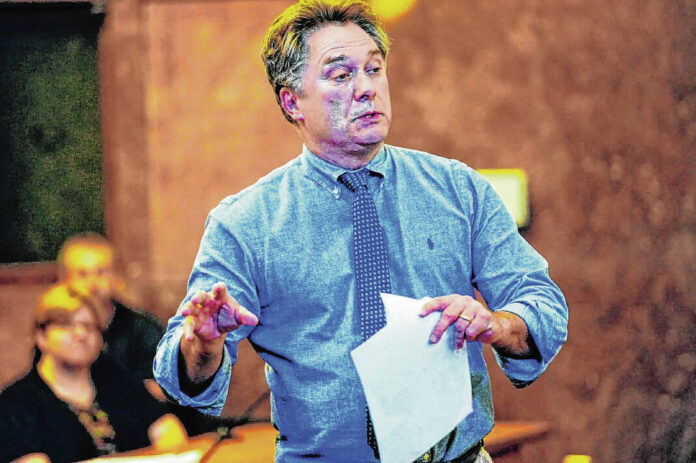HANCOCK COUNTY — Officials with the Indiana Supreme Court sent the state’s judiciary a proposal rule change they are considering which would affect broadcast proceedings in courtrooms.
The deadline for judicial officials and the media to make suggestions surrounding the proposed rule change is Monday, Aug. 1.
The Indiana Supreme Court will accept comments to weigh as they consider a change in courtroom coverage for the media. This comes after the Indiana Supreme Court authorized a pilot project allowing cameras in five trial courtrooms this past winter for broadcast coverage.
That decision marked a shift in thinking about transparency in Indiana courts, a move county judges said at the time they supported.
The four-month pilot was limited to news media and was under the discretion and authorization of the trial court judge, officials with the Indiana Supreme Court said. Courts in Allen, Delaware, Lake, Tippecanoe and Vanderburgh counties participated.
Now that the pilot program is over and a proposed rule change has been distributed for review and comments, officials with the Indiana Supreme Court noted there is not a specific date earmarked for a determination of the proposed rule change to go into place.
“Once the comment period closes, the members of the Indiana Supreme Court will consider the responses they’ve received,” said Kathryn Dolan, chief public information officer for the Indiana Supreme Court.
She noted any possible rule change or amendment would be communicated publicly.
The proposed rule change shared with judges and the media would allow cameras and recording devices as well as broadcast equipment into the courtrooms, but at a judge’s discretion.
The proposed rule change states that the judge would have the discretion to approve or deny a request for broadcast of a court proceeding. If the judge allows broadcast, the judge has discretion to interrupt or stop the coverage if he or she deems the interruption or stoppage appropriate. The judge also has discretion to limit or terminate broadcast at any time during the proceeding.
Hancock County Circuit Court judge Scott Sirk noted he expects all county judges will make the determination for broadcast access on a case-by-case, court-by-court basis if the amendment change becomes an official rule.
“It’s still going to be discretionary with the court and it’s not required, so each court will make its own decision and I’m fine with it,” Sirk said.
Still, Sirk noted he’s not in favor of blanketed access for the media to broadcast every case and said some cases should not be transmitted or recorded.
“High profile cases are worth the community’s interest and would be good to show, however that doesn’t mean everything should be shown,” Sirk said.
The proposed rule change states a judge has discretion to limit or terminate a broadcast at any time during a proceeding. The proposed change also reads, the means of recording will not distract participants or impair the dignity of the proceedings; and broadcasting is restricted to non-confidential proceedings.
Sirk noted cameras in the courtroom are a plus and minus type of thing, reiterating there are just some cases that need to remain out of the public eye.
“Sometimes you’re dealing with people who are most vulnerable and dealing with difficult things, and I don’t know that broadcasting those things out in the community would be helpful,” Sirk said.
The proposed rule change would not only mean more access to reporters for photos, videos and recordings of the happenings inside the courtroom, but would also allow judges to stream cases if a court official allowed. That practice took ground during the pandemic when court proceedings needed to move forward but face-to-face, in-person interaction was not recommended.
While officials with Superior Court 1 have broadcast hearings in the past under Judge Marie Castetter, Judge D.J. Davis stopped the practice when he took over the courtroom. The county’s other courtrooms are currently not equipped to stream on a daily basis.
Sirk said each court would have to evaluate whether or not they want to stream happenings like many of the courts around the state already do.
Hancock County Superior Court 1 judge D.J. Davis is out on medical leave. His replacement, Judge Jeffrey Eggers, did not reply to questions from the Daily Reporter about the proposed rule change, nor did Hancock County Superior Court 2 judge Dan Marshall.





